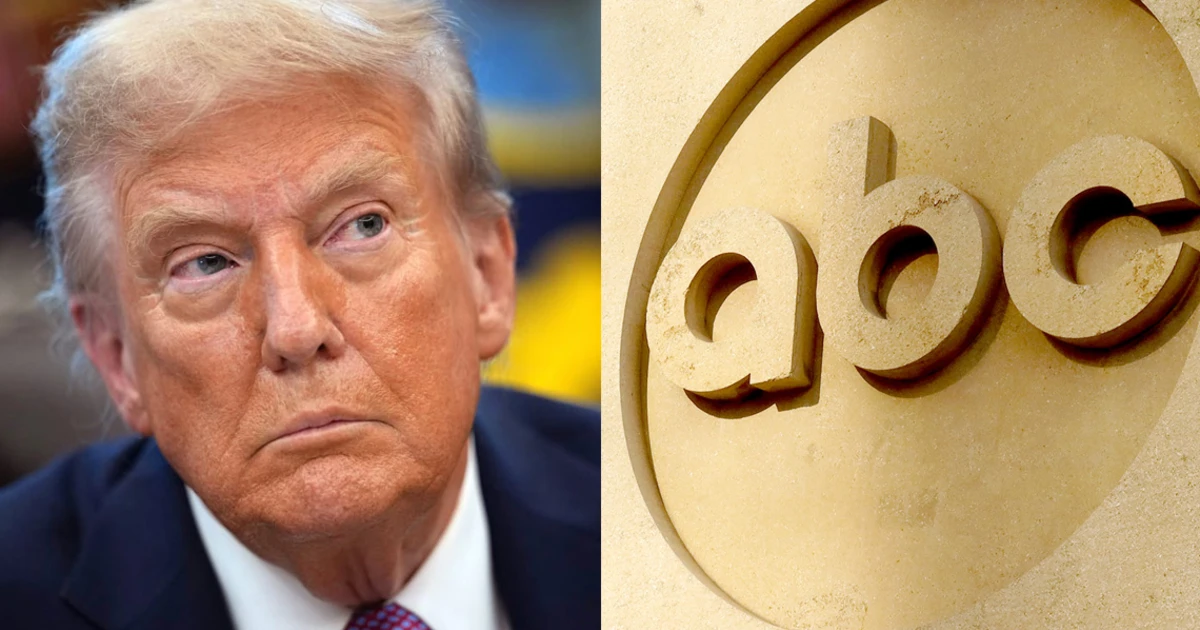
It’s been eight months since Donald Trump’s second inauguration, and three things are clear: 1) he is unpopular; 2) neither he nor anyone around him has any plan to change point 1; 3) despite points 1 and 2, major corporations and institutions continue to bow before the man who would be king.
The latest entry in the last category is ABC’s suspension of late-night host Jimmy Kimmel. Other commentators and experts, including my MSNBC colleagues, have already explained why Kimmel’s suspension is textbook government censorship. We cannot talk about this censorship, however, without talking about a crucial factor that long predates Trump: decades of media consolidation under a shrinking number of wealthy owners.
In 1983, 90% of American media was owned by 50 media companies. By 2012, that number was 6. Today, it is just 5.
The timeline leading up to Kimmel’s suspension is at this point well-established. After the late-night host joked about Trump and MAGA’s reactions to the assassination of Charlie Kirk, conservatives argued that he wrongly implied the alleged assassin was politically conservative. FCC chair Brendan Carr told a conservative commentator Wednesday, “When we see stuff like this, look, we can do this the easy way or the hard way” — you know, the sort of thing a government official says in a democracy.
Within hours, Nexstar, the largest owner of local television stations in the country, announced it would refuse to air Kimmel’s show. Soon ABC pulled the program nationwide. At the same time, Sinclair, the second-largest station owner, said it will continue to preempt Kimmel until he apologizes to Kirk’s family and makes donations to both his family and his political organization. (Again, to be clear: Kimmel’s joke was not about Kirk.)
It’s also well established at this point that each of these three companies has business before the Trump administration. Last month, Nexstar announced a $6.2 billion deal to buy smaller rival Tegna, growing its portfolio to 265 stations. That deal doesn’t just need the FCC’s approval; it would require the commission to change its current rule preventing companies from owning stations that reach more than 39% of U.S. households. Sinclair — best known for a viral video of dozens of its anchors reciting the same script about “biased and fake news” — also wants the FCC to lift the station ownership cap, which Carr has called “arcane” and “artificial.”
ABC’s parent company Disney has two deals that need the Trump administration’s signoff The Justice Department is reviewing its deal to purchase majority ownership of streaming service Fubo, Disney will also need regulatory approval to sell a 10% stake in ESPN to the NFL, in exchange for the league’s NFL Network, Red Zone channel and other media assets.
But these deals are only part of the story. Because for many years, neither Nexstar nor Sinclair nor any other company would have been able to own so many stations that allow them to pressure a broadcast network in almost unprecedented fashion. Nor could Disney own ABC alongside multiple other networks, movie studios and streaming platforms — all potential pressure points for Trump and his administration.
This consolidation is only getting worse.
After Congress passed the Communications Act of 1934, creating the FCC, the commission enacted strict limits on how many broadcast stations (both TV and radio) a person or company could own. In 1953, for example, the FCC established the “rule of sevens,” where no one could own more than seven AM, seven FM and seven TV stations, nor could those stations reach more than 25% of Americans.
But the deregulatory fever that gripped lawmakers beginning in the 1970s, and was supercharged during Ronald Reagan’s presidency, came for media ownership as well. In 1985, 7-7-7 became 12-12-12. The 1996 Telecommunications Act — passed by a Republican Congress and signed by Democratic President Bill Clinton — removed the caps on radio station ownership entirely and increased the TV ownership cap to 35% of households. More broadly, it confirmed the end of the New Deal view that media consolidation should be restricted. Nexstar, Sinclair and rivals like Gray Media have since purchased dozens of local stations.
At the same time, mergers among media companies exploded in frequency. Disney purchased ABC and ESPN. Westinghouse merged with Viacom, combining CBS with UPN, MTV and Nickelodeon. Comcast merged with NBCUniversal (MSNBC’s parent company). In 1983, 90% of American media was owned by 50 media companies. By 2012, that number was 6. Today, after the Paramount-Viacom merger in 2019, that number is just 5. Consolidation in the technology sector means that most of the major digital media platforms are also in the hands of a few major corporations, from Youtube (owned by Google) to Twitch (Amazon) to X (Elon Musk).
“When the government has allowed for decades of consolidation of media and technology companies,” says Gigi Sohn, former nominee to the FCC during the Biden administration, “it becomes a lot easier for authoritarian government to exercise control because there are just fewer entities to pressure.”
This consolidation is only getting worse. Earlier this year, Paramount, the owner of CBS, was purchased by Skydance Media, whose founder and CEO David Ellison is the son of pro-Trump billionaire Larry Ellison. Now, CNBC reports, the younger Ellison is planning a bid for one of the other four remaining media titans, Warner Brothers Discovery, which owns CNN and HBO Max. And the Wall Street Journal, citing “people familiar with the matter,” reports that the elder Ellison, through his company Oracle, would be a lead investor in a consortium that will receive an 80% share in TikTok’s new U.S. business.
If these moves come to fruition, pro-Trump (or at least Trump-friendly) billionaires will control TikTok, X, Facebook, CBS, CNN, Fox News, the Wall Street Journal, the Los Angeles Times and the Washington Post.
In the long term, says Sohn, “you have to reinstate limits on the amount of media anybody can control.” And tech companies’ grip on new media needs to be broken as well. Both will require legislation that, given big corporations’ sway in Washington, won’t be passed unless voters back lawmakers who affirmatively support these reforms. In the meantime, Americans need to support smaller, independent media outlets that are neither beholden to corporate interests nor vulnerable to the sort of commercial pressures that the Trump administration can exert. (My colleague Ryan Beckwith has compiled a list of worker-owned cooperative news sites, for instance.)
In the Supreme Court decision NBC v. United States, Justice Felix Frankfurter wrote that, in passing the Communications Act of 1934, “Congress moved under the spur of a widespread fear that, in the absence of governmental control, the public interest might be subordinated to monopolistic domination in the broadcasting field.” That fear is, if anything, even more justified today.
Trump will not be president forever. But unless lawmakers act, the regulatory environment that has allowed friendly oligarchs to consolidate media platforms will remain. And in the future, they may not merely exploit a would-be authoritarian, but manufacture their own.



